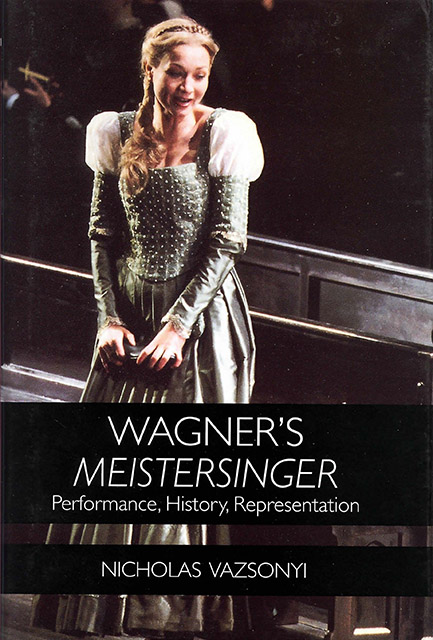Introduction Die Meistersinger: Performance, History, Representation
Published online by Cambridge University Press: 25 March 2023
Summary
Few personalities in cultural memory provide such ideal ground for interdisciplinary, or at least multidisciplinary, consideration as Richard Wagner, arguably the most significant composer this side of Beethoven. There is Wagner the musical innovator with a genius for evocative and sensuous sounds, Wagner the avant-garde dramatist with conservative tastes, Wagner the anti-Semite with Jewish friends, the nationalist political pamphleteer who associated with Marx and Bakhunin, the transcendent romanticist with a keen eye for business, the womanizing egotist, chased by creditors but with a king in the palm of his hands, worshipped and loathed by Nietzsche, Wagner the founder of the longest-standing theatrical tradition in German history. All these and more have been studied in what annually becomes an ever more unwieldy array of publications. And yet there is still work to be done, primarily in overcoming what may be the most stubborn of disciplinary divides, the one between music and what I will broadly call the “other” humanities. The problem with music is that its constituent components reach in several directions and require an assemblage of different skills and expertise not ordinarily associated with any other discipline that readily comes to mind. While music history and literature—for want of a better term—certainly do belong to the “humanities,” music theory combines not only the study of musical structures and a “grammar” that is almost mathematical in its conceptual complexity, but demands also the development of an acoustic sensitivity that includes the ability to “visualize” sound. The physics and physicality of this ear-brain training has much to do with what I would call the third branch of “music”: performance. This branch adds to the intellectual and auditory requirements additional physical and mental skills, including the capability of remembering large amounts of data, often under intense pressure. Talking about music in any reasonable way requires sensitivity to, if not actual experience with all of these. In the meantime, what we generally call the humanities are a long way off. Traditional scholars of the humanities—even the music lovers among them—thus understandably shy away from addressing musical issues in their scholarship.
There have more recently been notable—though not uncontroversial—exceptions to this divide.
- Type
- Chapter
- Information
- Wagner's MeistersingerPerformance, History, Representation, pp. 1 - 20Publisher: Boydell & BrewerPrint publication year: 2003
- 1
- Cited by



